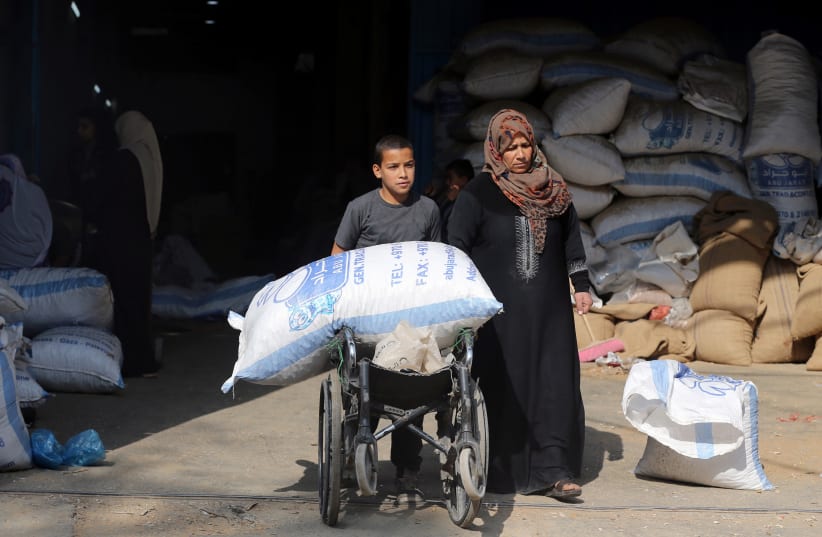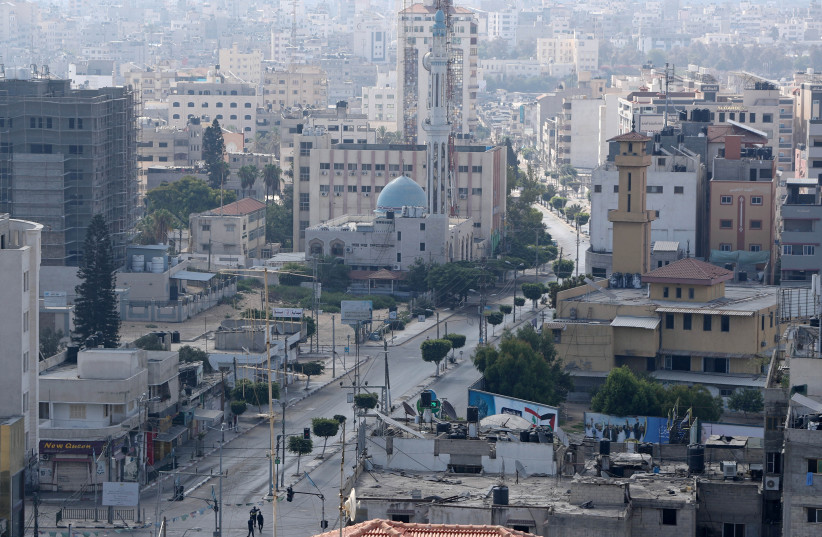The COVID-19 pandemic has shaken the globe, including the world’s largest economies, to the core, with severe and far-reaching consequences.
However, the effects are especially devastating for the Palestinian territories, and particularly for the Gaza Strip.
With an economy already on the brink of collapse, decreased purchasing power and Israeli restrictions on border crossings, economic activity in Gaza was already fragile, economist Mohammed Abujayyab told The Media Line, noting that “the coming of COVID-19 has moreover worsened the already catastrophic situation.”
“Small businesses and micro-projects, which constitute 90% of the economic work components in Gaza, are direct victims of the anti-pandemic measures, including strict and long closures, as many of them collapsed and went off market,” he said.
Business owners and traders searched for practical solutions and alternatives to overcome the pandemic’s challenges and save their enterprises.
For many, digital marketing has proven to be the answer.
“E-commerce and online marketing have increased economic activity by 40%. This is indicated by the volume of imports of the external e-stores to the Palestinian territories,” said Abujayyab, who is based in Gaza.
“Moreover, digital marketing has activated the transformation process in Gaza from traditional commerce to online trading, which created the opportunity for new businesses such as delivery services to flourish,” he added.
The growing use of social media to promote products has lightened the burden of operational costs on small entrepreneurs, who are barely keeping their heads above water in light of the harsh economic conditions, Abujayyab said.
Hiba al-Nakhala, her father and brother have had a carpentry business in Gaza City called Antica Home since 2018. By recycling wood waste, Nakhala and her family make remarkable artistic pieces, antique-style furniture and gifts.
“Our business has significantly prospered since we worked on our marketing strategies such as participating in exhibitions and developing our online presence on social media platforms such as Facebook and Instagram. I personally worked on my marketing skills and learned what type of ads suit our products and target audience, which reflected positively on our sales,” she told The Media Line.
Nakhala believes that Gazans’ mindsets have changed since the pandemic. “They seem to have more confidence now in online trading and are more willing to start their own businesses virtually,” she said.
Luna Alagha, another successful female entrepreneur, is a mother who used her expertise to start a business growing rare ornamental plants and flowers in her small nursery and then market them in a creative way, with artistic packaging and accessories.
Remarkably, Alagha managed to create a new type of agricultural soil that contains palm fiber, which is widely available in the coastal enclave, instead of the scarce algae and coconut fiber that is usually used. She makes her own compost, designs her plant accessories, and actively runs her Instagram and Facebook pages.
“The corona [pandemic] convinced me that without digital marketing, I can never move forward and make progress, especially since the area where my nursery is located is not a dynamic one and its people are not familiar with ornamental plants,” she told The Media Line.
After contracting with a well-known company in Gaza City, Alagha is preparing to inaugurate her own planting corner display within the coming two months.
“Soon, there will be a lot of work to present plants in a beautiful and modern style, new collaborations with wood crafters will be considered, and more marketing efforts will be made to maintain maximum customer satisfaction,” she said.
“A piecemeal approach to the current political, economic and security challenges in the Occupied Palestinian Territory (OPT) only risks perpetuating a continuing crisis,” according to a UN report published earlier this month calling for a coordinated and integrated response to address Palestinians’ increasingly precarious situation.
Walaa Mousa is a talented toy maker and accessory designer, and a brilliant tailor who makes embroidered artwork and displays it on her Facebook page in hope of producing an income.
“Social media has no doubt increased the number of people who know about my work and who sometimes buy them, but there remain major challenges, mostly financial, facing me in developing my work to the next level,” she told The Media Line.
“Because of economic hardship, I’m not able to pay for the necessary advertisements or to buy the high-quality materials that I need in my work. This is derailing my progress and thus reducing my income,” Mousa said.
For nearly 15 years, Gazans have been experiencing a grave human rights crisis due to the ongoing blockade by Israel and Egypt, which impacts nearly all aspects of life, in addition to the devastating internal division between Gaza and the West Bank that has further undermined the Palestinian social and political fabric.
The situation is going to become more difficult if things don’t change, according to Abujayyab. To overcome the crisis, “several steps need to be taken,” he said.
“First of all, restore Palestinian unity at all levels, including at the policy level. Then comes supporting economic development, and improving the living conditions of Palestinian citizens,” he continued.
“This will lead us to the most important move, which is demanding the end of the Israeli measures imposed on the Gaza economy such as suffocating companies and industrial factories by preventing them from developing their production lines, halting the export of their products, and banning the import of essential raw materials,” he said.
“Israel’s control of crossings, and its practice of political and financial extortion against the coastal enclave is a stark violation of the Palestinians’ rights that must end,” Abujayyab said.

